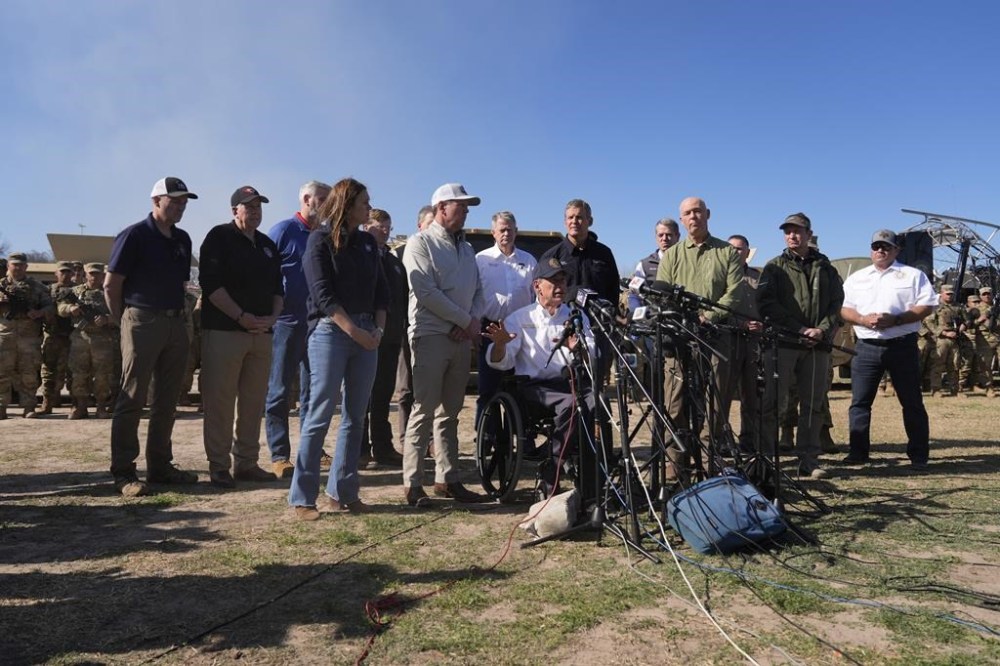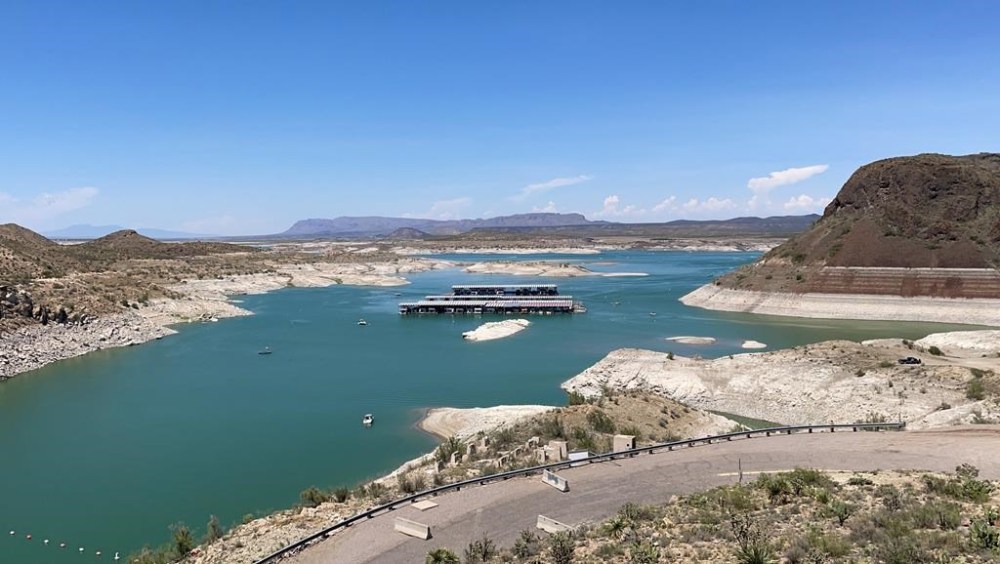The Supreme Court rejects a settlement in a water dispute between New Mexico and Texas
Advertisement
Read this article for free:
or
Already have an account? Log in here »
To continue reading, please subscribe:
Monthly Digital Subscription
$0 for the first 4 weeks*
- Enjoy unlimited reading on winnipegfreepress.com
- Read the E-Edition, our digital replica newspaper
- Access News Break, our award-winning app
- Play interactive puzzles
*No charge for 4 weeks then price increases to the regular rate of $19.95 plus GST every four weeks. Offer available to new and qualified returning subscribers only. Cancel any time.
Monthly Digital Subscription
$4.99/week*
- Enjoy unlimited reading on winnipegfreepress.com
- Read the E-Edition, our digital replica newspaper
- Access News Break, our award-winning app
- Play interactive puzzles
*Billed as $19.95 plus GST every four weeks. Cancel any time.
To continue reading, please subscribe:
Add Free Press access to your Brandon Sun subscription for only an additional
$1 for the first 4 weeks*
*Your next subscription payment will increase by $1.00 and you will be charged $16.99 plus GST for four weeks. After four weeks, your payment will increase to $23.99 plus GST every four weeks.
Read unlimited articles for free today:
or
Already have an account? Log in here »
Hey there, time traveller!
This article was published 21/06/2024 (568 days ago), so information in it may no longer be current.
WASHINGTON (AP) — The Supreme Court on Friday rejected a settlement between Western states over the management of one of North America’s longest rivers.
In a 5-4 decision, the justices ruled that the water-sharing deal between Texas and New Mexico can’t go through because the federal government still has concerns about New Mexico water use on the Rio Grande, which Colorado also draws from.
“Having acknowledged those interests, and having allowed the United States to intervene to assert them, we cannot now allow Texas and New Mexico to leave the United States up the river without a paddle,” said Justice Ketanji Brown Jackson, reading the majority opinion, which crossed ideological lines as it was joined by Justices Sonia Sotomayor, Elena Kagan, Brett Kavanaugh and John Roberts.

In a dissent, Justice Neil Gorsuch said the United States’ theory about how water should be distributed between the two states is “so aggressive that New Mexico fears it could devastate its economy.” Joined by Justices Clarence Thomas, Samuel Alito and Amy Coney Barrett, he wrote that the high court’s ruling “defies 100 years of this court’s water law jurisprudence.”
New Mexico’s state engineer said it was disappointing the high court scuttled the deal recommended by a federal judge overseeing the case.
“We need to keep working to make the aquifers in the Lower Rio Grande region sustainable, and lasting solutions are more likely to come from parties working together than from continued litigation,” said Mike Hamman, whose office is responsible for administering the state’s water resources.
Some New Mexico lawmakers had voiced concerns about the proposed settlement, which would have meant reducing the state’s use of Rio Grande water with steps like paying farmers to leave their fields barren and making infrastructure improvements.
Attorney Samantha Barncastle with the Elephant Butte Irrigation District, the largest in New Mexico, greeted the ruling with pleasure and said her group hopes all the parties will go back to the settlement table and hammer out a new agreement.
Farmers in southern New Mexico have had to rely more heavily on groundwater wells over the last two decades as drought and climate change resulted in reduced flows and less water in reservoirs along the Rio Grande. Texas sued over the groundwater pumping, saying the practice was cutting into the amount of water that was ultimately delivered as part of the interstate compact.
U.S. Circuit Judge Michael Melloy had previously deemed the proposal a fair and reasonable way to resolve the conflict consistent with a decadeslong water-sharing agreement.

The federal government, though, lodged several objections, including that the proposal did not mandate specific water capture or use limitations within New Mexico.
___
Associated Press writer Rio Yamat in Las Vegas contributed to this story.

